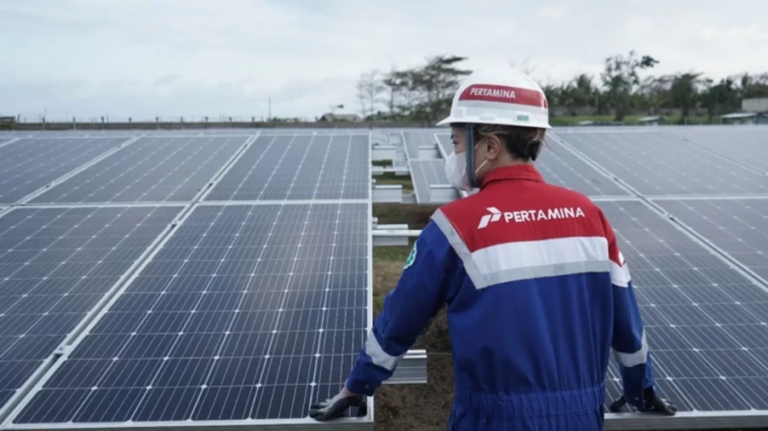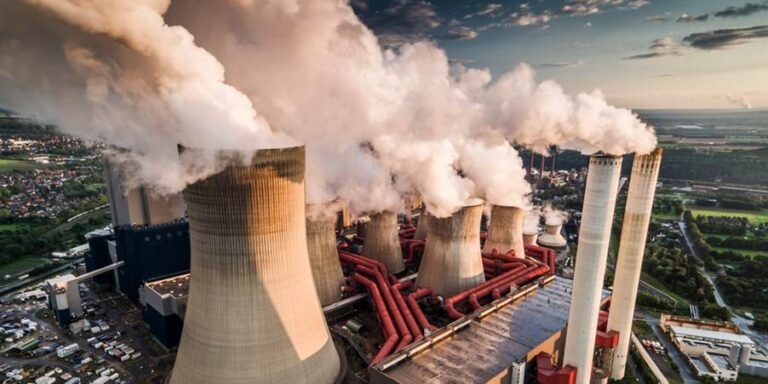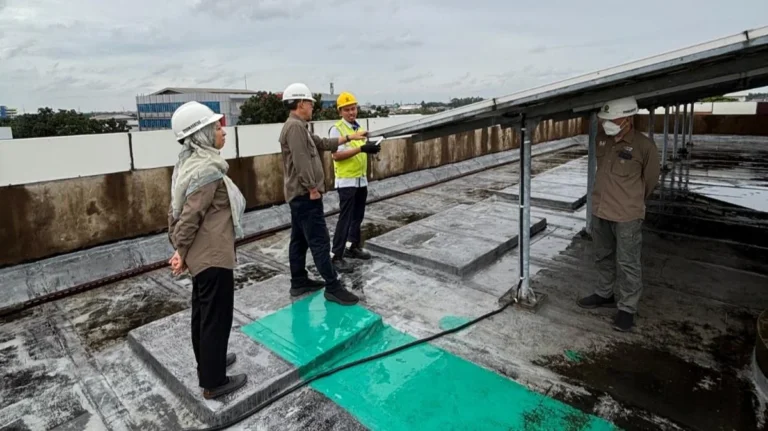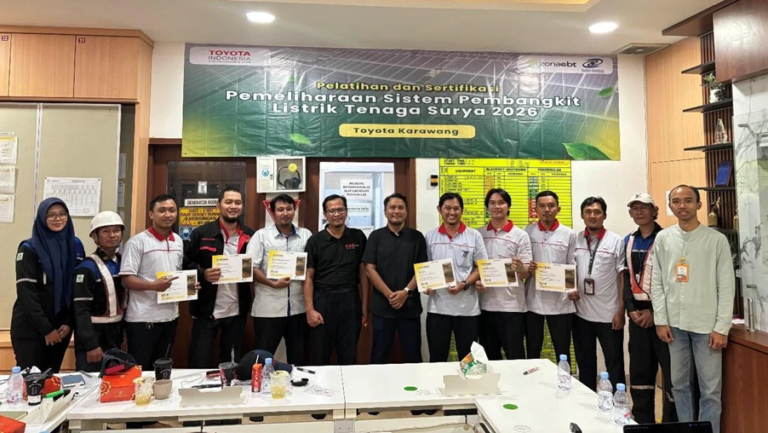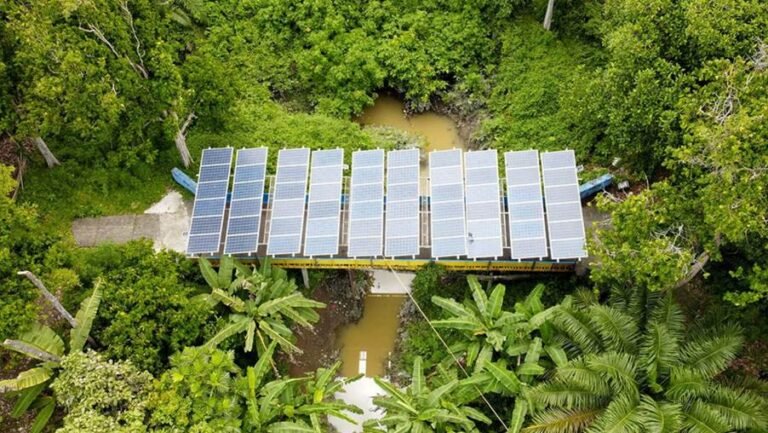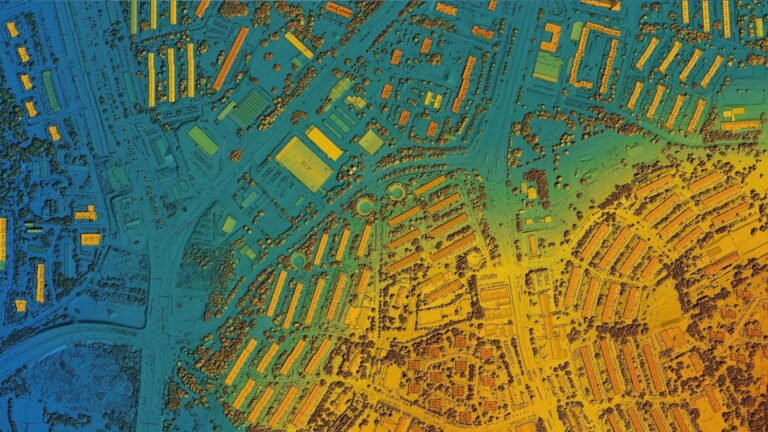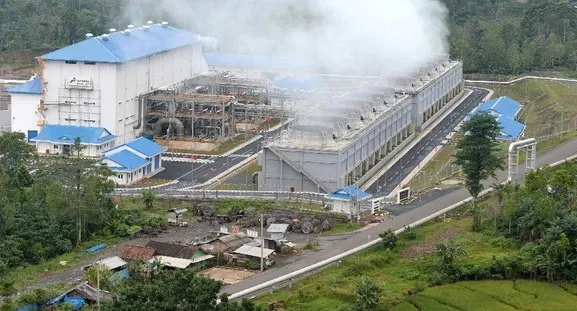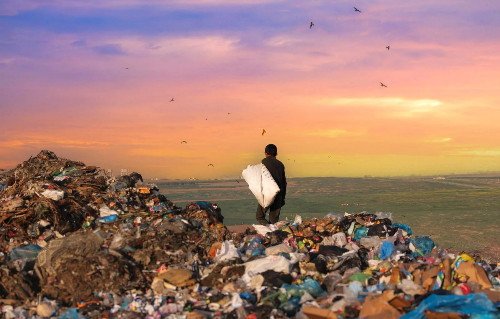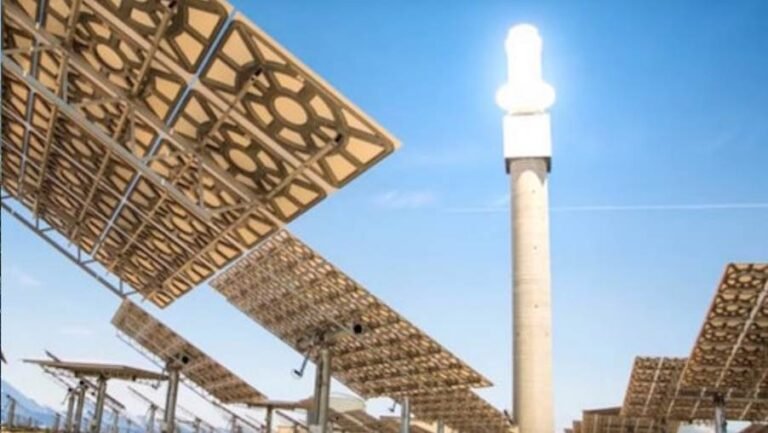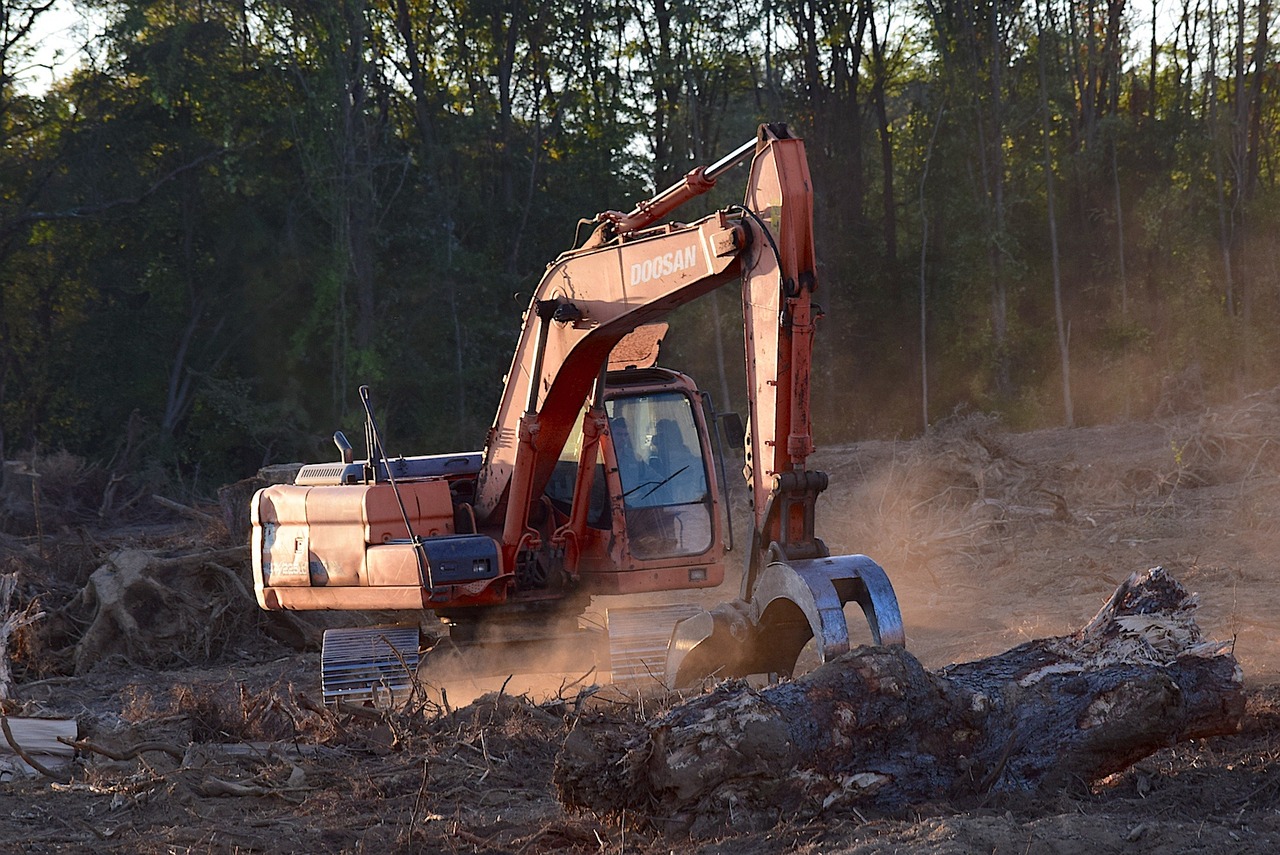
Summary :
- PT Biomasa Jaya Abadi (BJA) sources its pellets from two firms based in the Gorontalo province of northern Sulawesi: PT Banyan Tumbuh Lestari (BTL) and PT Inti Global Laksana (IGL). The two companies possess “private forest” licenses that encompass a total of 27,353 hectares (67,591 acres), which is larger than the city of Milwaukee.
- Auriga Nusantara indicates that over 9,740 hectares (24,070 acres) of forest have been removed in regions where biomass cultivation is allowed since 2020. Permits have been granted for more than 1.4 million hectares (3,459,475 acres) of energy plantation forests in Indonesia, with more than one-third of that area comprising untouched forest.
- Biomasa Jaya Abadi did not reply to multiple requests for interviews or comments. Banyan Tumbuh Lestari lacks publicly accessible contact details. Indonesia’s ministries of Environment and Forestry, Energy and Mineral Resources, and Maritime Affairs and Investment did not reply to requests for comments.
Large trucks head toward a semi-remote coastline on Sulawesi Island in Indonesia then stop next to a barge that will soon transport a large load of wood pellets to Japan and South Korea.
Who was Constructed the Shipping Terminal?
The shipping terminal was constructed by PT Biomasa Jaya Abadi (BJA) an Indonesian company aspiring to become a worldwide leader in wood pellet trading, which are being used more frequently alongside coal in power facilities by nations aiming to reduce fossil fuel consumption.
BJA proudly promotes its environmental qualifications, stating on its website that it, “Supports biomass as a renewable energy option, highlighting its importance in lowering carbon emissions and encouraging sustainability.”
Nonetheless, the grand statements conceal a more carbon-heavy truth: BJA’s wood pellets originated from the clear-cutting of over 1,000 hectares (2,500 acres) of rainforest in Sulawesi.
This is simply the most recent instance of deforestation for biomass energy in Indonesia, with comparable situations arising in the provinces of North Kalimantan and South Papua.
BJA is among seven Indonesian firms that export wood pellets. Concurrently, Indonesia has set its own objectives for increasing biomass energy production, sourced from the combustion of organic materials like wood chips. Although the Southeast Asian country presently depends on coal for two-thirds of its electricity production, it has pledged to the United Nations Framework Convention on Climate Change (UNFCCC) to cut its greenhouse gas emissions by 31.9% by the year 2030.
More :
- What about Water AI Footprint also Good and Bad AI to Carbon ?
- What Does “Net Zero” Refer to as the Climate Crisis Intensifies?
Combining the Regulations

BJA sources its pellets from two firms based in the Gorontalo province of northern Sulawesi: PT Banyan Tumbuh Lestari (BTL) and PT Inti Global Laksana (IGL). The two companies possess “private forest” licenses that encompass a total of 27,353 hectares (67,591 acres), which is larger than the city of Milwaukee.
BTL and IGL did not always operate in the biomass sector. They began with palm oil, obtaining permits to establish oil palm plantations in Gorontalo in 2010. However, those concessions remained unused for years. In early 2022, BTL and IGL were two of 192 firms whose development permits were canceled by the Ministry of Environment and Forestry because of inactivity or noncompliance.
A 2022 analysis from the environmental nonprofit Auriga Nusantara estimated that 2.4 million hectares (5.93 million acres) of intact rainforest existed within the region impacted by the change, sparking optimism among some that these areas might be reclassified for conservation purposes. At the time, the environment minister, Siti Nurbaya Bakar announced that the government would delegate management of a significant portion of the land within the nation’s well-regarded social forestry initiative, aimed at ultimately transferring control of over 13 million hectares (31.1 million acres) of land to local communities.
However, the widespread revocation did not leave the rainforests in BTL and IGL’s concessions untouched. Both firms had previously secured private forest permits from Siti’s ministry in 2020. Subsequently, they began to clear the rainforest in their concessions for the purpose of biomass production.
The clearing of rainforests for energy plantations has sparked worries about the damage to areas of high conservation value.
Local scientists are especially concerned about the effects in Pohuwato district, which houses endemic species like the dwarf buffalo (Bubalus depressicornis), deer pig (Babyrousa celebensis), and Jatna’s tarsier (Tarsius supriatnai). Besides serving as a vital habitat for biodiversity, the Pohuwato forests are significant water catchment zones.
Terry Repi, a scholar from Muhammadiyah University of Gorontalo, cautioned that converting these regions for energy crops could lead to the fragmentation of crucial wildlife habitats. A government report identifies 84,567 hectares (208,970 acres) in Pohuwato as rich in biodiversity.
According to Terry, that number is the highest of all districts or cities in Gorontalo. He stated during a discussion organized by Forest Watch Indonesia.
Terry mentioned that the Popayato-Paguat landscape also links the eastern and western areas of Sulawesi.
“Terry mentioned that there are 175 bird species, including 41 that are endemic.” “Out of these, 21 are safeguarded.”
Deforestation in Indonesia for Biomass Energy Demand

In Indonesia, the production of biomass is leading to deforestation throughout the archipelago. Auriga Nusantara indicates that over 9,740 hectares (24,070 acres) of forest have been removed in regions where biomass cultivation is allowed since 2020. Permits have been granted for more than 1.4 million hectares (3,459,475 acres) of energy plantation forests in Indonesia, with more than one-third of that area comprising untouched forests.
According to Manurung, more than 50% of these concession areas serve as habitats for iconic species like the Sumatran rhino, elephants, orangutans, and tigers.
In the carbon-abundant woods of Gorontalo, Sulawesi, the cutting, chipping, and transporting of aged trees, for the production of energy-efficient wood pellets has been optimized. Over 3,000 hectares (7,410 acres) of forest have been destroyed in a concession held by Banyan Tumbuh Lestari between 2021 and 2024. Another 2,850 hectares (7,040 acres) were cleared for the construction of logging roads.
Once trees are felled, they are processed into wood pellets at a plant close to the concessions controlled by Biomasa Jaya Abadi, the biggest exporter of wood pellets from Indonesia during 2021-2023, based on information compiled by Auriga Nusantara from the database of the Indonesian Ministry of Environment and Forestry. The database contains no entries for wood pellet exports before 2020.
Biomasa Jaya Abadi did not reply to multiple requests for interviews or comments. Banyan Tumbuh Lestari lacks publicly accessible contact details. Indonesia’s ministries of Environment and Forestry, Energy and Mineral Resources, and Maritime Affairs and Investment did not reply to requests for comments.
Almost all of Indonesia’s wood pellet output is exported to satisfy global demand, stated Alloysius Joko Purwanto, an energy economist at the Economic Research Institute for ASEAN and East Asia.
According to government data, from 2021 to 2023, the majority of Indonesia’s wood pellets were exported to South Korea (61%) and Japan (38%).
“It’s evident that the governments of Japan and South Korea are seeking to purchase additional biomass from Indonesia to reduce their domestic emissions,” stated Bhima Yudhistira, executive director of the Center of Economic and Law Studies based in Indonesia.
#ZonaEBT #SebarTerbarukan #EBTHeroes
Editor: Aghnia Tazqiah
More :
References :
[1] Indonesia biomass zone for Japan and S. Korea energy razes rainforest in Sulawesi
[2] Indonesian forests pay the price for the growing global biomass energy demand

